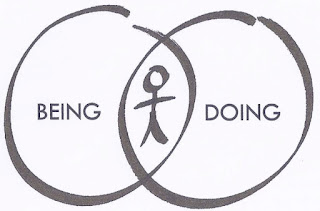Reflecting on the Last Words of Christ (Part 1)
[Note: These reflections were originally posted for Lent 2011.]
"Father, forgive them, for they don’t know what they are doing." (Luke 23:34)
Dr. Bernard Nathanson passed away on February 21, 2011. Dr. Nathanson was a leader of the pro-abortion movement and founding member of the National Association for the Repeal of Abortion Laws (NARAL, now the National Abortion Rights Action League). He estimated that he had supervised or performed over 75,000 abortions including the abortion of his own child. He admitted that he and his associates purposely feed misinformation to the media and deliberately attacked the Catholic Church in order to change public opinion to support legalizing abortion in the late 1960’s. Then something happened. Dr. Nathanson started to question the pro-abortion claim that the unborn child was merely a collection of cells and not a human life.
A longtime atheist, Nathanson still continued to support abortion rights despite his growing doubts until the mid-1980’s when he finally became convinced through advances in medical science that abortion was, in his words, "unjustifiable murder." He then helped to produce one of the most famous pro-life videos, The Silent Scream. Nathanson devoted the rest of his days to fighting legalized abortion. More significantly, he came to faith in God and was baptized into the Catholic Church in 1996.
At the moment of his baptism, every sin he had ever committed, every abortion, every lie, was forgiven. Think about that for a moment. The guilt of 75,000 murders was wiped away, cast as far as the east is from the west. It doesn’t seem fair. It doesn’t seem right. Shouldn’t he have to pay for all those innocent lives he claimed? Welcome to the scandal of the cross.
When I think about it, really think about it, I want Bernard Nathanson to be completely washed clean. I don’t want him to have to pay for his sins because I know I can’t pay for mine. If God can forgive Dr. Nathanson then I know he can forgive me. The cross means there is nothing I can do that’s too big for God to forgive. This is what St. Paul had in mind when he wrote, “For our sake he made him to be sin who did not know sin, so that we might become the righteousness of God in him.” (2 Cor. 5:21)
Forgiveness is the meaning and purpose of the cross. Jesus focuses our attention on this fact by praying for the forgiveness of his executioners. Most victims of crucifixion shouted out curses at their executioners, Jesus cried out for mercy for them. Nowhere else is the scandal of the mercy and grace of God on display more than at the cross. Humanity’s greatest sin, killing God's Son, is met by God’s greatest display of love, the life of his Son given for us.
"I assure you, today you will be with me in paradise." (Luke 23:43)
Tradition tells us the name of the Good Thief was St. Dismas. We know nothing of his life other than the fact that he was sentenced to crucifixion for being a criminal. Many would say that his final act was to steal heaven on that Good Friday. After the first thief mocks and scorns Jesus, Dismas rebukes him and offers a simple request to be remembered by Jesus. Somehow he recognized in the beaten, bruised and broken body of Jesus what the crowds of Jerusalem could not or would not see. Somehow he was able to see Jesus as the King of Kings ready to enter into his kingdom. His simple act of faith was rewarded by Christ’s promise of salvation.
It’s easy to be skeptical of death row confessions. We hear how hardened criminals suddenly “find Jesus” when it seems most convenient for them and it’s difficult not to react with some level of incredulity. We often ask ourselves how God could be so gullible as to accept the last minute “conversion” of someone who appears only to be trying to avoid going to hell. It seems unfair that someone who devotes their life to serving and following God and someone who ignores God until their final days would both be welcomed into heaven together.
In Matthew 20:1-16, Jesus tells a parable about a landowner who goes to town in the morning and hires men to work in his vineyard for a set wage. The man goes back to town near noon and again in the late afternoon each time hiring more workers for his vineyard. At the end of the day he pays all of the men the same amount. The men hired in the morning grumbled because they thought they should get more. He reminds them that they agreed to work for the price they were paid and tells them not to be envious of his generosity.
Does this mean that we can put off conversion so we can do what we want? Certainly not, for no one knows when their life will be required of them. Jesus and the scriptures are clear that we must remain faithful and vigilant. The moral of the story is not that the wicked prosper by fooling God, but that God's mercy knows no bounds and is always available to us. Indeed, it is God who makes a fool of the devil by mercifully accepting those who call on him even with their last breath.
Jesus’ words to the Good Thief should give us all hope. While we have breath, it is never too late for any of us to turn to Jesus. It's not too late for the friend or family member we love who has turned from God to come back to him.



Comments